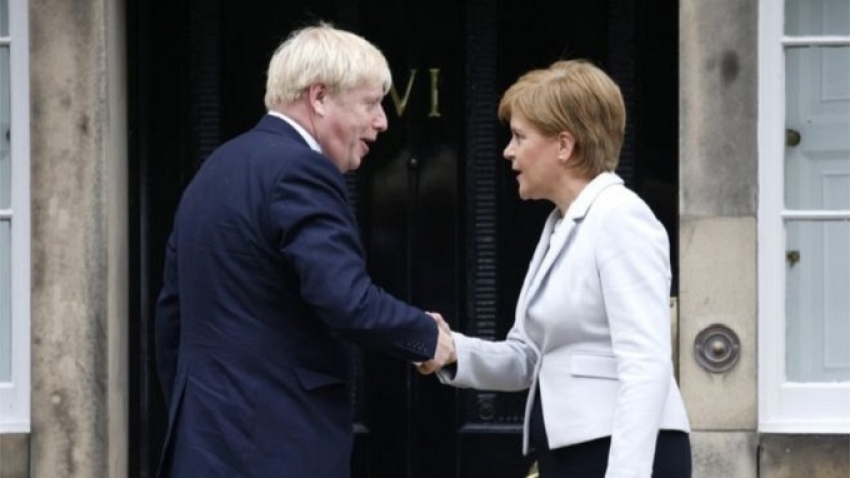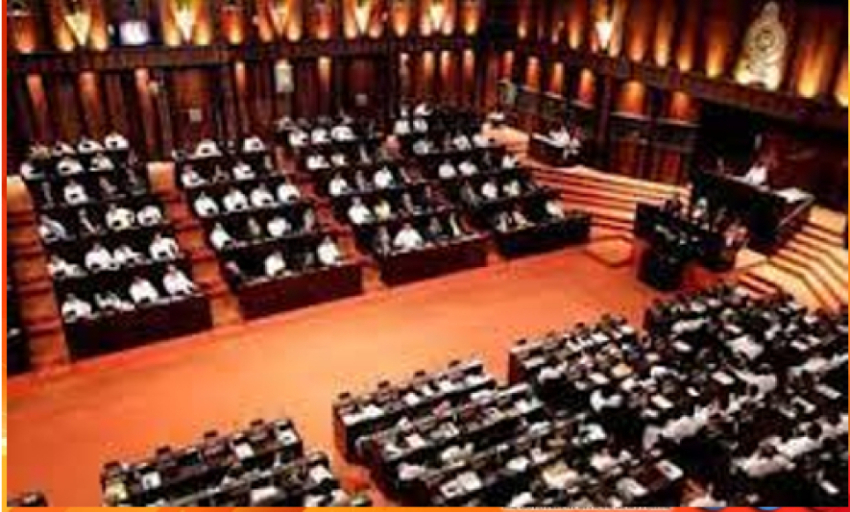A Brexit deal has been agreed between UK and EU negotiating teams before a meeting of European leaders in Brussels.Prime Minister Boris Johnson tweeted: "We've got a great new deal that takes back control."The two sides have been working on the legal text of a deal, but it will still need the approval of both the UK and European parliaments.The DUP has said it will not vote for the deal, potentially scuppering it.In a statement, the Northern Irish party, which the government relies on for support in key votes, said: "These proposals are not, in our view, beneficial to the economic well-being of Northern Ireland and they undermine the integrity of the Union."
Labour leader Jeremy Corbyn said the deal sounded "even worse" than what was negotiated by the PM's predecessor, Theresa May, and "should be rejected" by MPs.But European Commission President Jean-Claude Juncker said it was a "fair and balanced agreement".Both he and Mr Johnson have urged their respective parliaments to back the deal.No 10 sources have told the BBC's political editor Laura Kuenssberg that Mr Johnson will later ask EU leaders to reject requests for an extension to the Brexit deadline of 31 October.MPs passed a law in September that requires the PM to request an extension on 19 October if Parliament has not agreed a deal or backed leaving without a deal by that date.
MPs will later vote on whether to hold an extra sitting in the Commons on Saturday to discuss the next steps.Cabinet Office minister Michael Gove said if the sitting was approved, the government would hold a vote on the deal.He said he was "not contemplating defeat", but if the plan did not get the backing of MPs, the alternative was leaving without a deal.The DUP has been in an agreement with the Conservative Party since the 2017 election, which, in the past, gave the government a working majority.But after resignations and the removal of the party whip from more than 20 Tory MPs in recent weeks, Mr Johnson now could face a tough battle to get his deal through Parliament.Mr Barnier said he and Mr Juncker had been told by the PM "he has faith in his ability to convince the majority he needs in the House of Commons".
What is in the deal?Most of the deal is the same as the one agreed by Theresa May last year - the main change is the Northern Ireland proposals.The UK will continue to abide by EU rules until the end of 2020, and possibly longer, to allow businesses to adjustThe UK will still pay an estimated £39bn "divorce bill"
The rights of EU citizens living in the UK, and UK citizens in the EU, will be guaranteed
What's changed?Northern Ireland will be aligned to the EU single market
The controversial "backstop" - that critics feared could have kept the UK in a customs union with the EU indefinitely - has been removedNorthern Ireland will instead remain a part of the UK's customs territory, so it will be included in any future trade deals struck by the government after BrexitBut Northern Ireland will also remain an entry point into the EU's customs zone. The UK will apply tariffs to products entering Northern Ireland as long as they are not destined for onward transportation across the border
A joint EU/UK committee will decide which goods are at risk of entering the single market and the UK will collect EU tariffs on them on behalf of the EUThe Northern Ireland Assembly - which has been suspended since January 2017 - will get a vote every four years on whether to continue with the new trading arrangements
The decision would be based on a simple majority, rather than requiring a majority of both unionists and nationalists to support the rules in order for them to pass
Leader of the Commons and Brexit supporter Jacob Rees-Mogg said it was a "really exciting day today in British politics" as he urged MPs to "rally round this great deal".But Brexit Party leader Nigel Farage called for it to be rejected by Parliament, saying it would mean "we will not be making our own laws in our own country" and said the treaty "binds us in to other commitments".Consent issue at heart of DUP Brexit deal concern
Pound jumps as Johnson says Brexit deal reachedLiberal Democrat leader Jo Swinson also condemned the deal as "bad for our economy, bad for our public services, and bad for our environment".The pro-Remain MP said the "fight to stop Brexit is far from over", adding: "The next few days will set the direction of our country for generations, and I am more determined than ever to stop Brexit."
Brexit deal: Issue of consent at heart of DUP concern
By Chris Page
BBC News Ireland Correspondent
2 hours ago
Share this with Facebook Share this with Messenger Share this with Twitter Share this with Email Share
Related TopicsBrexit
Image copyrightAFP
Image caption
Demonstrators protest at the Carrickcarnon border crossing on the road between Dundalk in the Republic of Ireland and Newry in Northern Ireland
The Democratic Unionist Party's (DUP) bottom line has always been that any new Brexit arrangements should not separate Northern Ireland from the rest of the UK, economically or constitutionally.
Under the Stormont assembly's cross-community voting rules, contentious measures require a majority of both unionists and nationalists in order to pass.
That means that the biggest parties - the DUP and Sinn Féin - in effect have a veto.
The DUP had hoped to secure an upfront Stormont vote to approve the new arrangements.
But it's understood that the current proposals would give Stormont a say four years after the end of the transition period - that would mean 2024.
A straightforward numerical majority would keep the special arrangements in place for another four years.
Alternatively, if the arrangements get cross-community consent - in other words, if they're passed by most nationalists and most unionists - they would remain in place for eight years.But a vote couldn't happen if the assembly wasn't operating.
The DUP's bottom line has always been that any new Brexit arrangements shouldn't separate Northern Ireland from the rest of the UKPresently, it hasn't sat for more than two and a half years, since Sinn Féin resigned from the power-sharing devolved government.Shortly afterwards, an election left unionism without a numerical majority in the Stormont chamber for the first time in the history of Northern Ireland.
Mark Simpson
✔
@BBCMarkSimpson
Here’s one of the reasons the DUP rejected the Brexit deal.
At the last NI Assembly election, unionists lost their overall majority at Stormont, coming well short of the 46 seats required.
Under these figures, they wouldn’t be in control of proposed new Brexit arrangements.
View image on Twitter
63
3:55 PM - Oct 17, 2019
Twitter Ads info and privacy
80 people are talking about this
Report
End of Twitter post by @BBCMarkSimpson
So for the DUP, the issue of consent - and a fear that Dublin and Brussels would have too big an influence on trading rules - goes to the heart of the party's concerns that Northern Ireland's place in the UK would be weakened.
Several rounds of talks to restore the Stormont Executive haven't succeeded - and few, if any, hold out hope that devolution is returning in the coming weeks.
What are the outstanding issues?
Sinn Féin and the DUP continue to essentially blame each other for the ongoing deadlock.
Sinn Féin vice-president Michelle O'Neill - who would be in line to jointly lead the Northern Ireland Executive with Arlene Foster if devolved government came back - has re-emphasised her party's opposition to any mechanism which would allow the DUP to block Brexit plans designed to keep the border open and prevent any disruption to trade across the island of Ireland.
Her tweet - "No border and no veto" - shows how the complexities of Stormont politics have become increasingly bound up with the UK-EU negotiations.
The technical talk about Brexit and the border focuses on trade, goods regulations, and potential tariffs.
But for politicians in Belfast and Dublin, the significance of those issues is generated by deeper issues - such as identity, nationality, and peacebuilding.
Pound gains as Johnson says Brexit deal reached
1 hour ago
Share this with Facebook Share this with Messenger Share this with Twitter Share this with Email Share
Related TopicsBrexit
Image copyrightGETTY IMAGES
The pound has risen after a Brexit deal was agreed between UK and EU negotiating teams.
Sterling jumped more than 1% against the dollar at first, climbing above $1.29, after Boris Johnson said the UK and EU had agreed a "great new deal".
The pound also rose against the euro, although it failed to hang on to its initial gains.
Analysts noted difficulties remained after the DUP party reiterated its opposition to the deal.
Worries about the possibility of the UK leaving the EU without a deal have been weighing on the value of the pound, as markets view a no-deal Brexit scenario as damaging for the UK's economy.
Sterling has risen in value whenever there have been signs that a deal could be reached.
Pound v Dollar
Announcing news of the breakthrough in the Brexit talks, European Commission President Jean-Claude Juncker said the deal was "a fair and balanced agreement for the EU and the UK and it is testament to our commitment to find solutions".
"I recommend that [EU summit] endorses this deal."
Paul Dales, chief UK economist at Capital Economics, said: "If the Brexit deal agreed by the EU and UK earlier today passes through Parliament, then there is scope for economic growth, interest rates, gilt yields and the pound to all rise further than is widely expected."
Why has the value of the pound jumped?
New Brexit deal agreed, says Boris Johnson
LIVE: Brexit deal latest as PM heads to EU summit
How does Brexit affect the pound?
The agreed deal will still need the approval of both the UK and European parliaments, while Northern Irish party the DUP has cast doubt on its sign-off, saying it still cannot support it.
Earlier, the DUP released a statement saying it could not back proposals "as things stand", and - after the PM's announcement - said its statement "still stands".
Pound v Euro
Analysts warned that this opposition from the DUP could still scupper the deal.Michael Brown, senior analyst at Caxton, noted that "some of the wind has been taken out of the pound's sails after reports that the DUP are not yet on board to back a deal"."The Parliamentary arithmetic for passing a deal looks challenging," he said. "Attention will continue to focus on whether the new agreement will pass in the Commons on Saturday, while sterling traders will continue to pay close attention to developing headlines from this afternoon's EU summit."
News of the deal also lifted the stock market, with the FTSE 100 index up 0.6%.Shares in companies with heavy exposure to the UK economy - such as housebuilders and banks - saw some of the biggest increases.Adam Marshall of the British Chambers of Commerce said many businesses would "reserve judgment until they see the detail", adding that firms "need a chance to analyse precisely what the terms of this agreement would mean for all aspects of their operations"."Let's not forget, we've been here before," he added. "There is still a long way to go before businesses can confidently plan for the future."For business, this deal may be the end of the beginning - but it is far from the beginning of the end of the Brexit process."
Nicola Sturgeon says Johnson deal would mean 'much harder Brexit'
1 hour ago
Share this with Facebook Share this with Messenger Share this with Twitter Share this with Email Share
Related TopicsBrexit
Image copyrightGETTY IMAGES
Image caption
Nicola Sturgeon and Boris Johnson do not see eye to eye on Brexit
The deal agreed between Boris Johnson's government and the EU would mean a "much harder Brexit" than previous proposals, Nicola Sturgeon has said.
An agreement between the UK and EU was announced on Thursday morning, but is still to face a vote in the Commons.
The first minister said it was "clear that Scotland is being treated unfairly", and confirmed that SNP MPs "will not vote for Brexit in any form".
And Ms Sturgeon said a "much harder Brexit beckons if this deal passes".
Mr Johnson said the "great new deal" would see the UK "take back control of our laws, borders, money and trade without disruption".
However, it is unclear if the proposals will pass a vote of MPs on Saturday, with the DUP saying they still cannot support it.
New Brexit deal agreed, says Boris Johnson
Live: Brexit deal latest as PM heads to EU summit
The deal was announced by Mr Johnson and European leaders via Twitter on Thursday morning, ahead of a summit in Brussels.
It removes the much-disputed "backstop" proposals for the Irish border post-Brexit, and would instead see Northern Ireland remain in the UK's customs territory - while adhering to a limited set of EU rules on goods. Representatives in Northern Ireland would be able to decide whether to continue this arrangement every four years.
European Commission President Jean-Claude Juncker said it was a "fair and balanced agreement", calling for the Brexit process to "move on".
Mr Johnson said the "great" new deal "allows us to get Brexit done and leave the EU in two weeks' time, so we can then focus on the people's priorities and bring the country back together again".
However, opposition parties in the UK have been critical, with Labour leader Jeremy Corbyn saying the deal sounded "even worse" than what was negotiated by the previous prime minister, Theresa May".




















